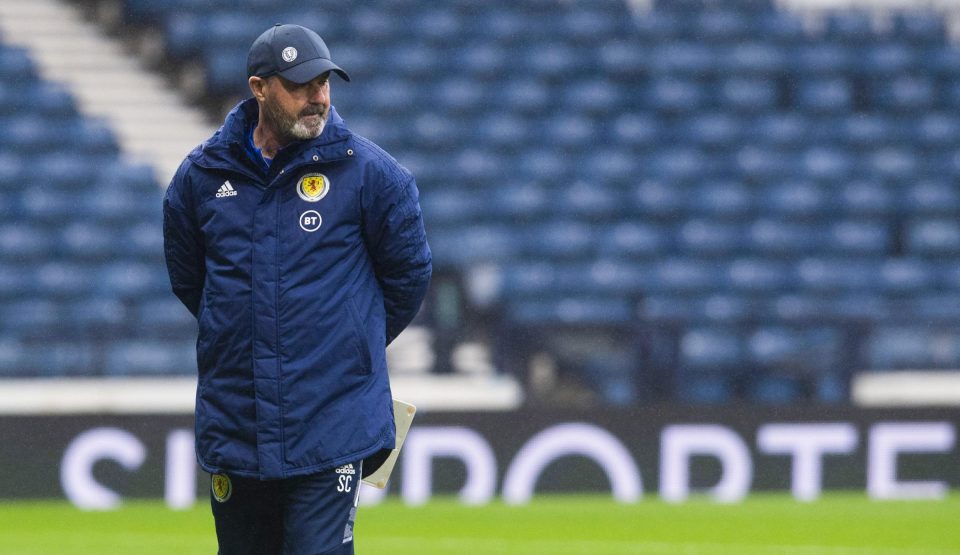STEVE CLARKE believes that spending his teenage years working in a factory before moving into football provided a crucial insight into management that he is still benefitting from today.
The Scotland manager left school at 16 and found himself working alongside a variety of characters before he was handed a contract by St Mirren and committed to a future in professional football.
A stint in the Ayrshire Juniors league signalled the start of Clarke’s playing career and the former West Brom, Reading and Kilmarnock boss believes that this grounding in the men’s game, coupled with his factory experience, moulded his management philosophy.
“I was always into football – in Scotland when I was growing up, it was football or nothing,” Clarke told the High Performance podcast. “Football or fighting, maybe!
“I came from a big family. My brother was a professional footballer, my young brother wasn’t quite good enough to be professional but had a fine footballing career. My father was a good amateur player but got an injury while he was young so didn’t make it to the top. He always wanted his boys to play football but more than that, he always wanted us to be successful and ambitious.
“At that time footballers didn’t make any money. I was told to leave school at 16 – I wasn’t going to university, none of that. I went off to Beecham’s Pharmaceuticals to go and be an electrician and they turned me down – my dad was delighted with that – but they did offer me a position as an instrument artificer. Don’t ask me what the second part means, I’ve no idea!
“I trained for four years after leaving school and going into a factory environment. You grow up quite quick working alongside wise old men who are always looking to take the p*** out of the apprentices. It was a good learning experience.
“My football career picked up a wee bit when I was picked up by St Mirren thanks to my schoolboy form. I got farmed out to play in the Ayrshire Juniors League, which toughens you up: teenage boys playing against seasoned pros. Or hardened criminals, as I called them. But I learned how to look after myself and at 18 won a part-time contract with St Mirren.”
Clarke continued: “You pick up the experience of all these people you work with. A factory is a totally different environment to a dressing room but there are a lot of similar characters. There are people who are always testing you, always looking for you to make a mistake to see how you react.
“You get the ones who will try and bully you and you have to stand up to them and recognise that they’re trying to bully you. You get the ones that will go out of their way to help you – I met a lot of really good people in the factory – and in Junior football you get similar lessons.
“You get people who look after you because they see your talent and you try and take those values in. These people just want you to be honest and straightforward – they just want you to go in, do your work, not got ideas above your station. And if you did get ideas above your station, they’d knock your head off. It was a good way to grow up and a good learning environment.
“I like honesty in the people I work with; right through from the staff to the players. I think you foster that by example and try to be as honest as you can be.”


